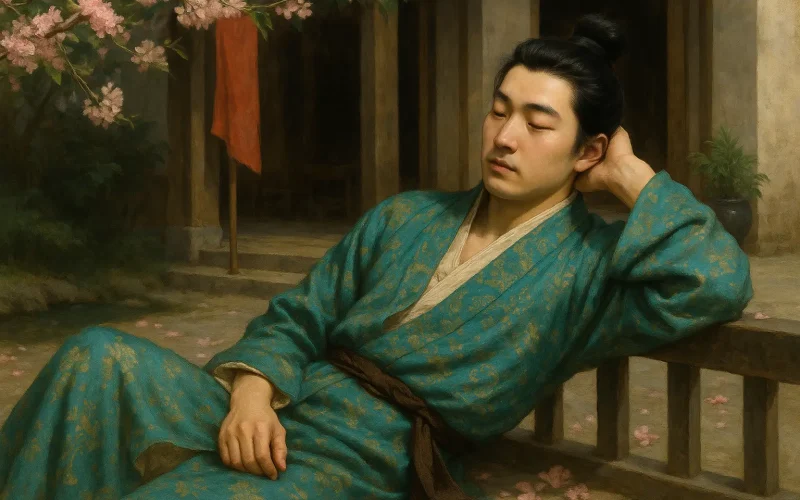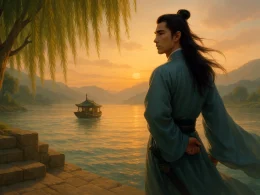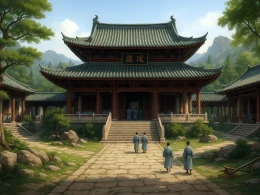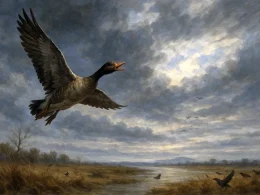Like snow it flies down, stands on mosses green,
Joins river gulls to keep me from the scene.
Seeing my boat about to drift away,
"I beg you be my messenger to clouds and spray."
Original Poem
「白鹭」
陆龟蒙
雪然飞下立苍苔,应伴江鸥拒我来。
见欲扁舟摇荡去,倩君先作水云媒。
Interpretation
Living in the turbulent late Tang Dynasty, with a corrupt court and dark governance, Lu Guimeng often retreated to the Jiangnan region, finding solace in poetry and the company of birds and nature. "The Egret" was composed while observing the egret by a river or lakeside. Traditionally, the egret symbolizes purity and nobility. To the poet, it is not merely part of the natural scenery but also embodies his own aspiration for integrity and detachment from worldly vulgarity.
First Couplet: "雪然飞下立苍苔,应伴江鸥拒我来。"
Xuě rán fēi xià lì cāng tái, yīng bàn jiāng ōu jù wǒ lái.
Snow-white, it flies down and stands on the green moss;
It ought to keep river gulls company, yet rejects my approach.
The couplet first depicts the egret’s pristine grace—"snow-white" (雪然 xuě rán) portrays its pure feathers and extraordinary aura. "Rejects my approach" (拒我来 jù wǒ lái) personifies the egret, hinting at the poet’s self-reflection: though he longs to connect with noble beings, he feels excluded, mirroring his loneliness and unrealized ambitions in reality.
Second Couplet: "见欲扁舟摇荡去,倩君先作水云媒。"
Jiàn yù piānzhōu yáodàng qù, qiàn jūn xiān zuò shuǐ yún méi.
Seeing this, I long to drift away on a small boat;
I ask you, egret, to be my matchmaker between water and cloud.
Here, the tone shifts toward lyrical expression (抒情 shūqíng). The poet imagines rowing into a misty, ethereal landscape—a metaphor for spiritual escape—and invites the egret to serve as a mediator (媒 méi) between humanity and nature. The word "ask" (倩 qiàn) implies a yearning for connection with the pure and timeless.
Holistic Appreciation
In just twenty-eight characters, Lu blends vivid imagery with deep emotion. The egret’s elegance contrasts with the poet’s loneliness, forming a portrait of moral resilience. The bird becomes a bridge to a higher aesthetic and philosophical realm—what classical criticism calls 意境 (yìjìng), an artistic conception that feels both expansive and deeply personal.
The poem inherits the egret’s traditional symbolism of nobility but infuses it with Lu’s individual voice: an outsider seeking solace in nature, using the bird’s purity to mirror his own ideals.The language is fresh and elegant, the conception lofty, revealing Lu Guimeng’s distinctive reclusive style and poetic artistry.
Artistic Merits
- Expressing feelings through objects, symbolizing nobility: The egret’s snow-white image symbolizes a noble character; the poet’s interaction with it—being "rejected"—metaphorically expresses his alienation from the world and his adherence to solitary integrity.
- Personification, full of charm: The egret is endowed with temperament, capable of rejecting or matchmaking for the poet, giving the scenery personality and enhancing the poem’s vividness and emotional tension.
- Brevity encompassing depth, subtle and lasting: Mere four lines condense scene, emotion, and philosophy: the riverside egret, the poet’s self-comparison of loneliness, and the implied ideal of pursuing purity.
- Serene conception, elegant tone: Using "water and cloud" as imagery expands the pictorial space, extending the poetic realm from reality to the ethereal, achieving a transcendent and free-spirited effect.
Insights
Human interaction with nature is not merely observation but also spiritual sustenance. Through the egret, the poet depicts his own solitary and noble situation while expressing his pursuit of a pure life. Reading it today, it reminds us to seek comfort in nature and maintain a clear, self-possessed mindset. Even amid turmoil and noise, we can find our own spiritual refuge.
About the Poet
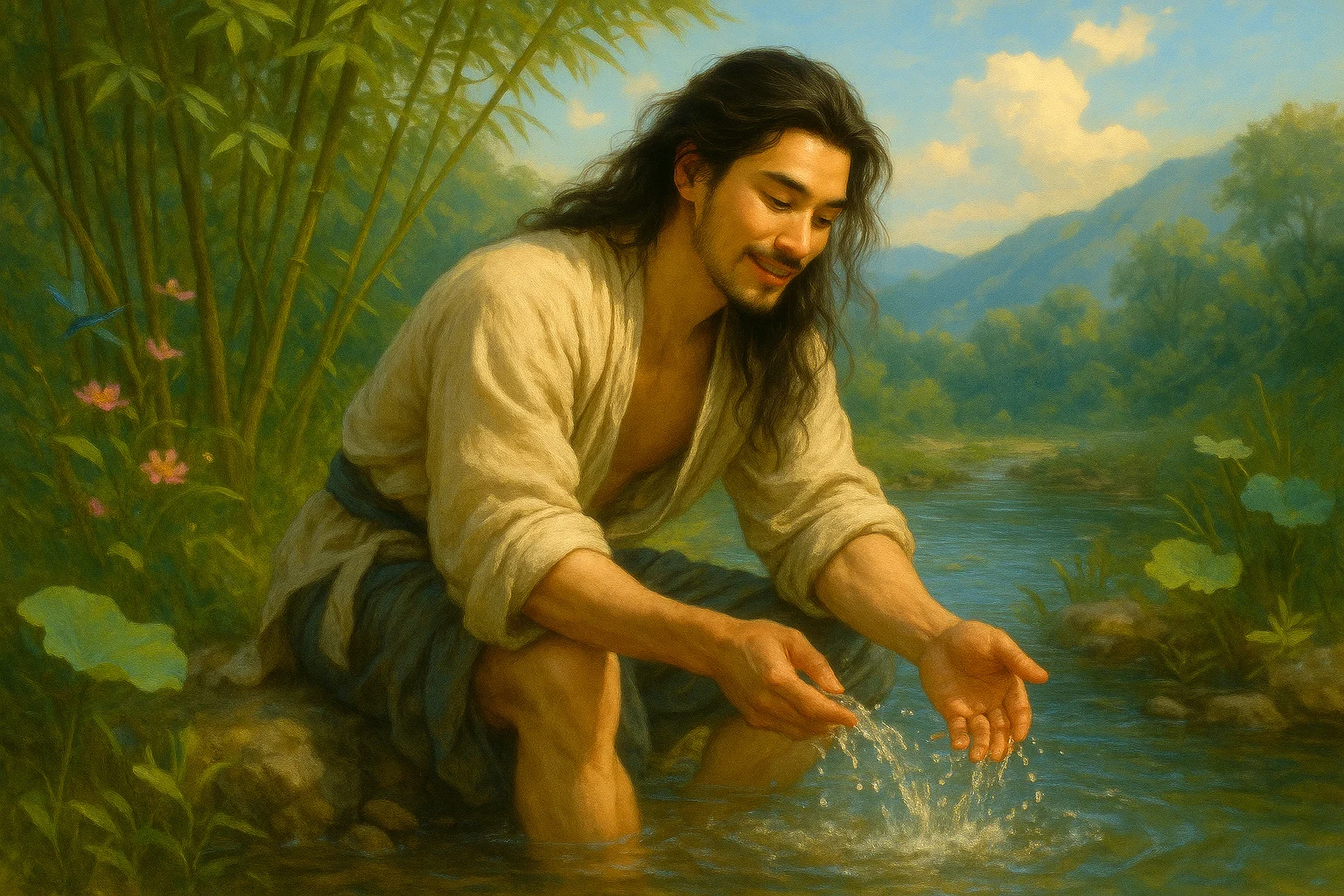
Lu Guimeng (陆龟蒙 ?– c. 881 CE), a native of Suzhou, Jiangsu, was a Late Tang dynasty writer and agronomist. After failing the imperial examinations, he retreated to a reclusive life in Puli, Songjiang. He formed a famous literary partnership with the poet Pi Rixiu, and the pair are often referred to collectively as "Pi-Lu." His poetry is known for its social satire and a style that is incisive yet subtly restrained. His inclusion in the Biographies of Talents of the Tangunderscores his significance. The modern writer Lu Xun famously praised his essays, noting that they provided "a sharp radiance piercing through a world of muddle". Lu Guimeng is regarded as a uniquely distinctive voice in the literary scene of the late Tang.








